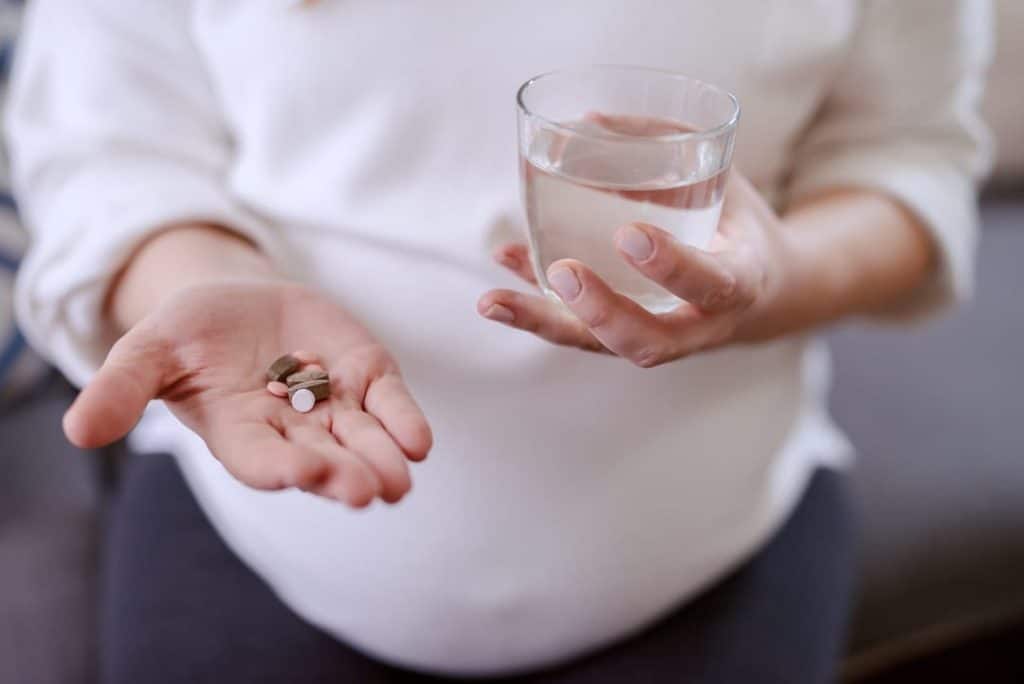What Are Fertility Supplements?
Fertility supplements are generally made of herbs and other seemingly natural products. They are expected to boost fertility in both men and women. However, there are still only very limited studies available to prove their effectiveness in treating such a complex medical issue.
How Do Fertility Pills Work?
Fertility medications increase certain hormones in the body. This then encourages the release of a healthy ovum and increases the likelihood of pregnancy. However, supplements do not necessarily fall into the category of fertility pills or medications.
Often times, supplements that claim to boost fertility are labeled as natural. Unfortunately, that doesn’t mean they are safe. Herbs and supplements have often not been studied by the Food and Drug Administration (FDA) and have not been studied in-depth enough.
Of course, that doesn’t mean they can’t work. It just means you should exercise caution, limit your expectations, and consult with your physician.
Who Should Take Fertility Supplements?
There are fertility supplements for both men and women. If you have tried to conceive for more than 12 months, without any luck, you may want to consider fertility supplements. Before you rush out to purchase a bottle, be sure to communicate with your physician first.
As many supplements are not regulated by the FDA, they may not be safe for you, depending on your current state of health. It is highly recommended to meet with your own physician before turning to any type of supplements.
Fertility Supplements for Women
Some fertility supplements on the market are intended for women, while others are advisable for men. Here are a few supplements geared towards women:
Folic Acid
A folic acid supplement may not increase your fertility rate per se, but it has been proven to help prevent spinal tube defects in the baby. This increases a woman’s likelihood of carrying her pregnancy to term and ensuring her unborn child is safe from life-threatening or altering spinal tube complications.
CoQ10
Early studies show that Coenzyme Q10 improved egg quality in mice. Though this has not yet been fully studied on humans, it is believed there may be a benefit to women taking CoQ10 to better their chances of conceiving.
Acetyl L-Carnitine
Acetyl L-Carnitine (ALC) has shown promising signs in preliminary studies of improving conditions, such as polycystic ovary syndrome (PCOS), endometriosis, and amenorrhea. As these conditions may affect or delay pregnancy for most sufferers, there is hope this supplement may be able to boost fertility.
Inositol
This supplement is recommended for regulating menstrual cycles. Infertility may sometimes be the result of an imbalanced cycle that makes it next to impossible for women to conceive. Controlling the cycle and regulating it can help women successfully conceive.
Probiotics
Generally speaking, probiotics have a good effect on the body. Probiotics help maintain a healthy digestive system. While there is no direct evidence linking this supplement to fertility, it is believed that a healthier body is in better condition to conceive.
Omega-3s
Also not a fertility booster on its own, omega-3s are recommended for women trying to conceive. Omega-3 fats can help with the healthy development of an unborn baby. Once women do conceive, having plenty of stored omega-3s will be beneficial to both her and her future child’s health.
Fertility Supplements for Men
There are also supplements recommended for men when it comes to infertility. Sometimes, infertility may be the result of a low sperm count. Here are some supplements that may help:
Folic Acid
Some preliminary studies have shown folic acid to improve the quality of sperm in some men. In most cases, this is a harmless supplement to take, and even if it does not boost sperm count, it should not have any adverse effects. Of course, it is best to clear it with your doctor beforehand.
Vitamin E
Vitamin E has been linked to improving sperm mobility because of its antioxidant properties. The mobility of the sperm has a considerable impact on the chances of conceiving. Taking a vitamin E supplement may help speed those little swimmers along.
Vitamin C
A 2016 study showed promising signs that vitamin C might help improve sperm mobility in males suffering from obesity. As obesity can have an adverse effect on sperm flow, vitamin C is directly linked to improvement for this type of person.
Other Fertility Supplements for Men
CoQ10 has also shown some ability to mobilize and multiply sperm count. Studies have not been conducted on large population sizes yet. The results are from very small sample sizes, but so far results are positive.
Risks of Fertility Supplements
There isn’t really anything in this world that comes without risk. And it is no different for fertility supplements. While they may seem to be natural or made from ingredients you already ingest daily, the full risks may not yet be known. Natural isn’t always better.
In fact, a natural label usually means the supplement has not yet undergone the stringent FDA approval process. It may have no adverse health risks, but the truth is, we simply don’t know.
Sure, vitamin C can seem like a safe supplement, but most people don’t know that supplements contain very high levels of vitamin C as compared to foods containing vitamin C. In some cases, too much vitamin C can have serious health complications.
For individuals who already take prescribed medications or suffer from certain health conditions, the addition of supplements may be the best option. High levels of certain herbs and supplements may interfere with the body’s absorption of medications you currently take or worsen health conditions to a potentially dangerous state.
How to Increase Fertility Naturally
There are ways to boost your body’s fertility naturally – without consuming any “natural” products. Here are some helpful tips:
- Lose Weight– If you are overweight, this may be the culprit behind your struggles with infertility. It is important for both partners to be at a healthy weight. Not only for conception, but for a healthy lifestyle, too.
- Quit Smoking– It is no secret – smoking can lead to infertility in both males and females. Cutting this nasty habit will not only boost your fertility but improve your own health, as well.
- Eat Healthy– It has been proven that unhealthy diets loaded with trans fats and sugars, can make it difficult to conceive. Eliminating or drastically reducing these foods will give you more energy and improve your chances of conceiving.
- Reduce Stress– Stressful conditions cannot always be avoided. However, how you control or relieve your stress is what counts. Living on high alert and feeling stressed continually, can decrease the odds of fertility in both men and women. The best thing you can do is learn to cope with stress in a healthy and efficient way.
- Limit Alcohol– The key takeaway here is that unhealthy habits make conceiving more difficult. Overconsumption of alcohol can have a dramatic effect on fertility in both sexes. Keep your alcohol intake to the recommended weekly limits or less.
Fertility Diet
There are no magic foods that will make you miraculously conceive. But there are plenty of healthy foods that can improve your odds. Here are a few foods to consider eating more of:
- Antioxidants– Foods rich in antioxidants may help improve sperm count, mobility, and egg production.
- Fiber– Eating more fiber will regulate your digestive system. There is evidence to support that a healthy gut can also lead to healthier reproductive organs.
- Healthy Fats– Healthier fats like omega-3s have many benefits for both mothers and their unborn babies. Plus, consuming more healthy fats will encourage you to eat less trans fats – the fat that may be worsening your health and making it more difficult for you to maintain a healthy weight.
Other Ways to Boost Fertility
Another thing to keep in mind is the health benefit of exercise. Regular exercise can help regulate your digestive system and your menstrual cycle. It can also help you maintain a healthy weight, reduce stress and anxiety, and promote a healthier sleep cycle. All of these positive side effects of exercise are associated with improving fertility rates.
Foods and Activities to Avoid
Basically, the idea is to avoid unhealthy dietary and lifestyle habits. An unhealthy body will often struggle more than a healthier body to conceive a healthy pregnancy. You cannot bring life into this world if you are not taking care of yourself first.
Just as you should secure your own oxygen mask on an airplane before assisting others, you must put your physical, mental, and emotional health at the top of your priority list.
Avoid activities that are not beneficial to your health, like smoking, unhealthy eating, and a sedentary lifestyle. Do your best to make a healthier you, your main concern for now.
Consult with Your Doctor
There are many ways to boost infertility. However, some healthy couples can do all these things right and still not conceive, while others can do all the wrong things and conceive anyway. Each and every couple is unique. The truth is that you cannot diagnose your causes for infertility on your own.
In many cases, lifestyle changes can have an immense impact. In others, medical intervention is necessary due to biological issues that may be unique to each person. Before you commit to taking supplements or drastically modifying your diet, consult with your physician.
The first step is understanding what infertility is. Taking anywhere from a few months to one full year to conceive is not unheard of. And it doesn’t mean you or your partner are infertile. Millions of Americans are in your shoes.
If you are concerned about your fertility, always seek care from a trained medical professional who knows you and your health profile. Once you narrow down your concerns, you may begin making the necessary changes to improve your chances. For your safety, and the safety of your future children, never make any changes to your medications or supplements without a proper medical consultation beforehand.










